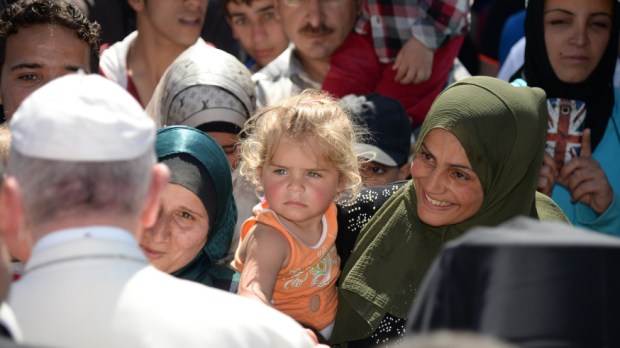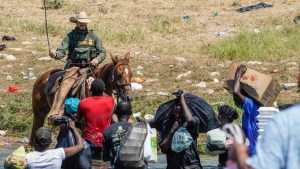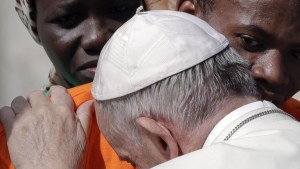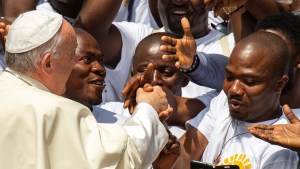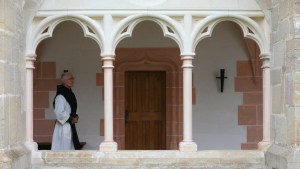Pope Francis addressed an international organization at the service of migrants that Benedict XVI wanted the Holy See to join, just as he is set to travel to Cyprus and Greece where one of the main focuses of his trip will be the migrant issue.
The Pope’s message was for the International Organization for Migration as it marks its 70th anniversary.
“The debate on migration is not really about migrants. Or rather, it is not solely about migrants: it is about all of us, about the past, present and future of our societies,” the Pope said.
We must never forget that these are not statistics, but real people whose lives are at stake.
Money over people
Pope Francis noted how richer countries have a high demand for migrant labor, but that migrants themselves are “subject to resentful attitudes by many of their host communities.”
“Unfortunately, this double standard stems from the prevalence of economic interests over the needs and dignity of the human person,” he said, adding that the pandemic made this problem particularly evident.
“Even more regrettable,” he said, “is the fact that migrants are increasingly being used as bargaining chips, as pawns on a chessboard, victims of political rivalries.”
How can suffering and despair be exploited to advance or defend political agendas? How can political considerations prevail when it is the dignity of the human person that is at stake? The basic lack of human respect at national borders diminishes all of us in our ‘humanity.’ Beyond the political and legal aspects of irregular situations, we must never lose sight of the human face of migration and the fact that, beyond the geographical divisions of borders, we are part of a single human family.
4 Observations
Pope Francis went on to make four observations about concrete steps to better the international situation of migrants. The four points reflect how the Pope has spoken in the past on the nuances and complexity of migrant issues, such as, for example, when he was returning from an ecumenical pilgrimage to Geneva and a meeting with the World Council of Churches.
1Legal avenues
There is an urgent need to find dignified ways out of irregular situations. Desperation and hope always prevail over restrictive policies. The more legal routes exist, the less likely it is that migrants will be drawn into the criminal networks of people smugglers or into exploitation and abuse while in contravention of the law.
2Integration
Migrants render visible the bond that unites the whole human family, the richness of cultures and the resource for development exchanges and trade networks that diaspora communities represent. In this sense, the issue of integration is fundamental; integration implies a two-way process, based on mutual knowledge, mutual openness, respect for the laws and culture of the host countries with a true spirit of encounter and mutual enrichment.
3Family rights
The migrant family is an essential component of communities in our globalized world, but in too many countries migrant workers are denied the benefits and stability of family life as a result of legal impediments. The human void left behind when a father or mother emigrates alone is a stark reminder of the overwhelming dilemma of being forced to choose between emigrating alone to feed one’s family or enjoying the fundamental right to remain in one’s country of origin with dignity.
4Root causes in countries of origin
The international community must urgently address the conditions that give rise to irregular migration, thus making migration a well-informed choice and not a desperate necessity. To ensure that most people who can live with dignity in their countries of origin do not feel compelled to migrate irregularly, efforts are urgently needed to “create better economic and social conditions […] so that emigration will not be the only option left for those who seek peace, justice, security and full respect of their human dignity” [4].
Benedict’s reasons
The Pope noted how it was that the Holy See became part of the organization:
Ten years ago, at the 100th Session of this Council, by decision of my beloved predecessor, Pope Benedict XVI, the Holy See, in a manner consistent with its nature, principles and specific norms, chose to become a Member State of this Organization. The basic reasons that led to this decision are still very valid and urgent today [1].
1. To affirm the ethical dimension of population movements.
2. To offer, through its experience and its well-established network of associations in the field throughout the world, the collaboration of the Catholic Church in international services dedicated to uprooted people.
3. To provide comprehensive assistance according to needs, without distinction, based on the inherent dignity of all members of the same human family.
